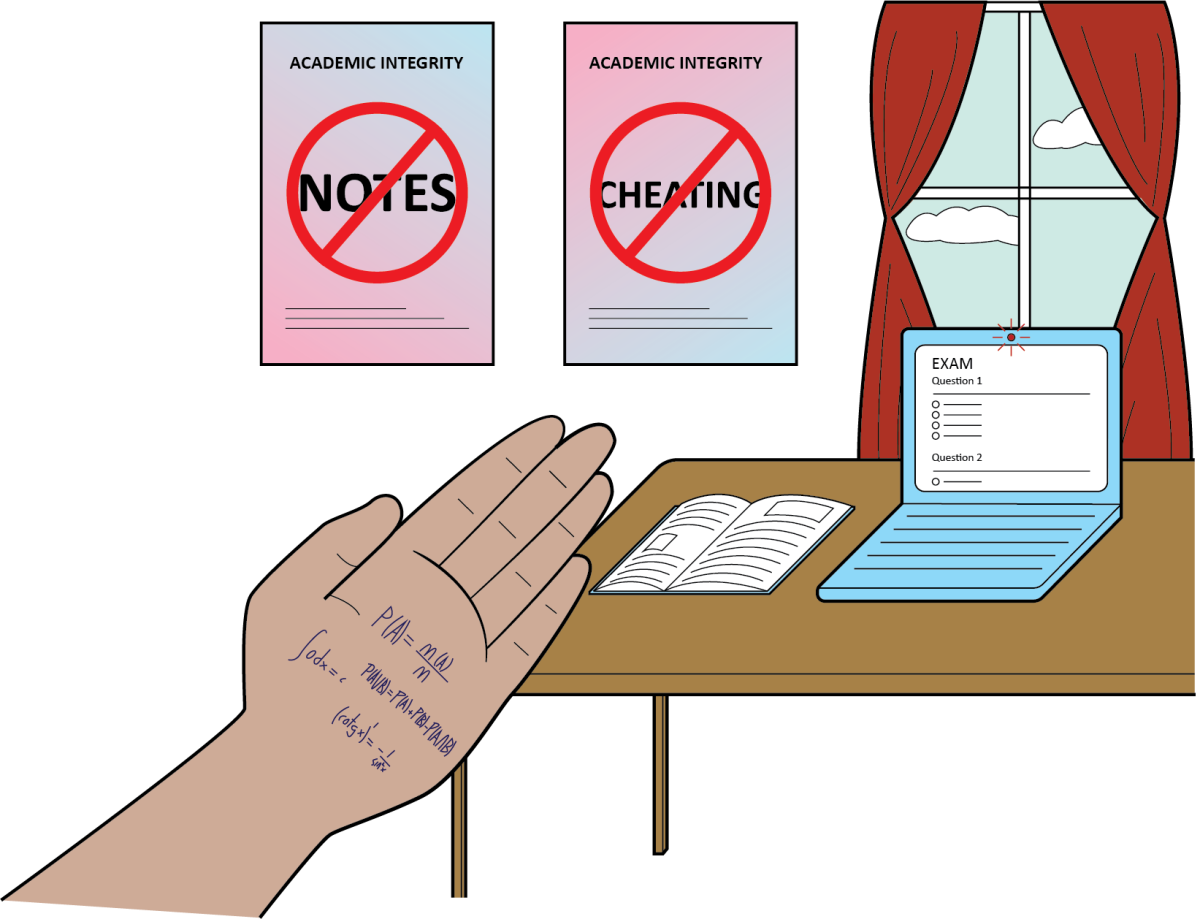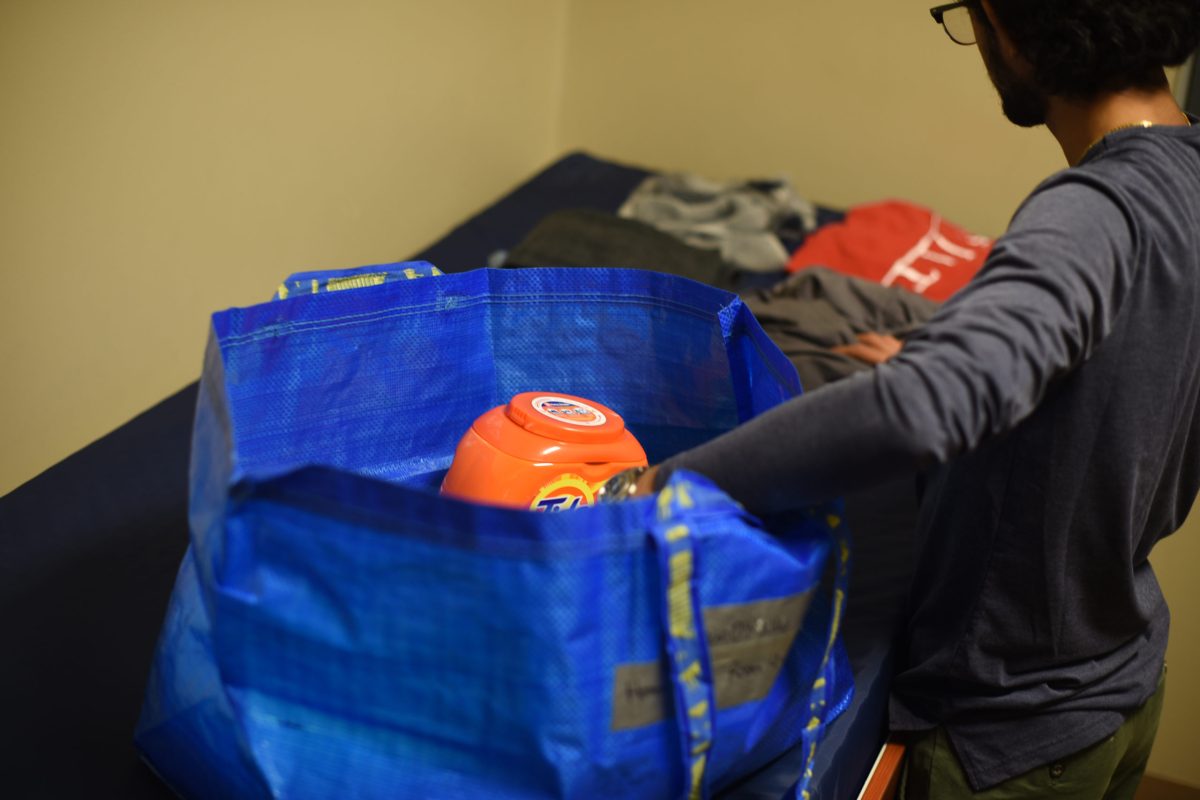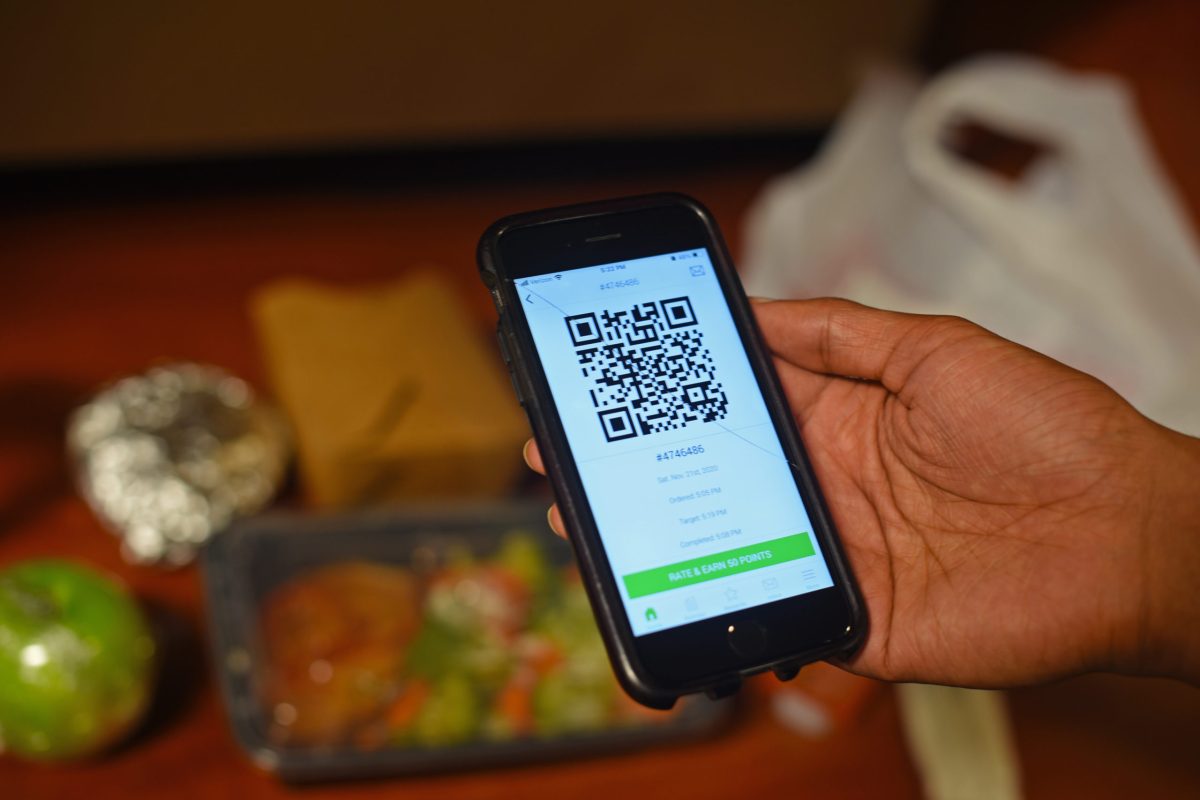“Respondus Lockdown Browser” has become a phrase synonymous with fear that makes the stomachs of college students everywhere turn with disgust. With virtual learning becoming the main interface for all of our classes nowadays, computers, phones, and all other gadgets and gizmos have become integral parts of our lives, becoming the medium for the thousands-dollar classes that we enrolled at NJIT to take to now be delivered to the comfort of our own abodes.
But… something about the college experience is lost in all the digital noise. Students become disconnected from their classes, and sometimes understandably fail to grasp their course material over a computer screen as well as they would in-person under normal circumstances. In large lecture courses, an individual’s questions, comments and concerns are easily drowned out by the pace and sheer load of material. Unless the student forces themselves to attend office hours or join group-study group chats and video conferences, they will be absolutely lost on their exams.
Last semester, this disconnectedness boiled over to cause some serious integrity issues throughout the student body: Students, noting the weaknesses in a system of examinations that included no physical proctor, seized opportunities in their moments of weaknesses and anxiety to use prohibited resources during their tests. Understandably, many of the perpetrators were found out and properly punished, but those events have now landed the entirety of the student body in the scalding hot water we find ourselves in currently.
How can I describe Respondus except as forcefully downloaded spyware? The amount of permissions that the browser requires to function, such as camera access, microphone access, keystroke tracking, facial recognition and God knows what else has my computer’s malware spotter doing cartwheels every time I have to boot it up. I understand why these functions are practical to track in order to prevent cheating, but that doesn’t change the fact that it is a complete invasion of privacy previously unbeknownst to this age of technology.
I would probably tolerate these trackers more if they worked properly half the time. Respondus constantly chooses the wrong microphone to record out of. The window often scales incorrectly to fit my computer screen, so it becomes next to impossible to read the words on screen. Its facial recognition tracker begins to suspect users of cheating for simply looking away from the camera to scribble on scrap paper. How am I supposed to properly commit to doing my Differential Equations exam if I feel hyperaware looking down at my work?
Additionally, some professors require a second device set up in our room, a further invasion of privacy and stressor to obtaining a working second device. It is stressful enough to complete an exam, let alone set up multiple devices before even getting started.
Beyond these measures, some NJIT education departments decided to further supplement anti-cheating measures by restricting the ability to return to previous questions on exams. These are the absolute first test-taking strategies students are taught: complete the easy problems first and then come back later to harder questions later to reduce stress, save time, and maximize possible points. Now? This strategy is impossible. Accidentally clicked next? Too bad. You better save enough time for every question of your test, and that means watching the teeny-tiny clock in the top corner of your screen tick away while you try desperately to focus on the material in front of you. Even though the use of anti-cheating measures is reasonable, they should absolutely not come at the detriment of the student’s ability to learn and to properly assess themselves during exams.
A combination of all of these anti-cheating measures haunt us students’ nightmares, not to mention add literal bucketloads of stress onto us during every exam, jeopardizing our focus when we actually get to take the exam – after spending an unnecessary ten minutes of time clicking through menus and surroundings checks before every test, of course. Do I think that these anti-cheating measures are effective? Sure. But the changes they add to test days are so drastic and catastrophically challenging at times, that the average student is now more disadvantaged than ever before when taking exams that already only serve to validate their precious time and money spent at college.













































